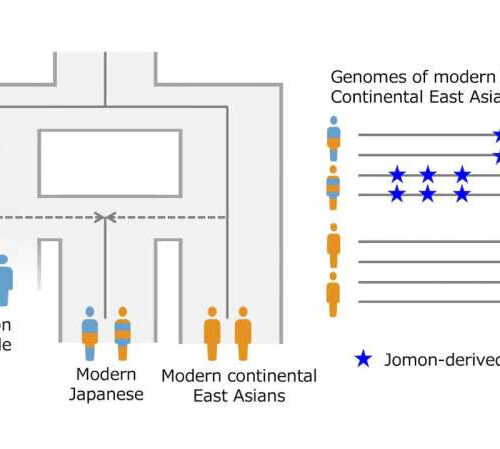by Lori Solomon Poor oral health may increase the incidence of Meniere disease, according to a study published in the January issue of the Journal of Personalized Medicine. Jung-Hyun Park, from Mokdong Hospital in Seoul, South Korea, and colleagues examined the association between oral health and Meniere disease. Participant data were retrieved from the National Health...
Category: <span>Prognostic</span>
HIV drug may be linked to increased risk of hypertension
by Boston University Credit: Unsplash/CC0 Public Domain In 2019, the World Health Organization formally recommended the drug dolutegravir (DTG) as the preferred antiretroviral therapy (ART) for people living with HIV in low and middle-income countries (LMICs), citing that it is more effective and tolerable, less costly, and less prone to developing drug resistance than the previously recommended...
Head injuries could be a risk factor for developing brain cancer
by University College London Credit: Unsplash/CC0 Public Domain Researchers from the UCL Cancer Institute have provided important molecular understanding of how injury may contribute to the development of a relatively rare but often aggressive form of brain tumor called a glioma. Previous studies have suggested a possible link between head injury and increased rates of brain...
Lifelong bachelors face poorest prognosis with heart failure
AMERICAN COLLEGE OF CARDIOLOGY Men who never married were more than twice as likely to die within about five years after a heart failure diagnosis compared with women of any marital status or men who were previously married, according to a study presented at the American College of Cardiology’s Annual Scientific Session Together With the...
Research reveals historical Japanese regional mix and genetic predispositions to obesity and asthma
by University of Tokyo Dual ancestry: Although there are no known direct descendants of the Jomon people nowadays, thanks to genetics this study was able to infer some of their physical traits beyond what could be studied from skeletal remains, such as the genetically high levels of blood sugar and triglycerides. Credit: iScience (2023). DOI: 10.1016/j.isci.2023.106130 Ask...
Study finds chronically disrupted sleep may increase the risk for heart disease
by Vanderbilt University Medical Center Credit: Unsplash/CC0 Public Domain Sleep irregularity—chronically disrupted sleep and highly variable sleep durations night after night—may increase the risk for atherosclerosis, according to a study led by Kelsie Full, Ph.D., MPH, of Vanderbilt University Medical Center. The multicenter study, reported Feb. 15 in the Journal of the American Heart Association, followed 2,032 older,...
Gum inflammation parallels novel ‘cytokine score’
by New York University Credit: Pixabay/CC0 Public Domain Researchers at NYU College of Dentistry have developed a single score to describe the level of cytokines in saliva, and this score is linked with the severity of clinical gum inflammation, according to a study published in the journal PLOS ONE. While more research is needed to test the “cytokine score,” it...
Breast cancer risk models may incorrectly classify many women
by University of California, Los Angeles Credit: Unsplash/CC0 Public Domain Breast cancer risk estimates for individual women vary substantially depending on which risk assessment model is used, and women are likely receiving vastly different recommendations depending on the model used and the cutoff applied to define “high-risk,” according to a new study from UCLA. The...
New study reveals pregnant people who deliver large babies are at increased risk of developing diabetes later in life
SOCIETY FOR MATERNAL-FETAL MEDICINE Media Contacts: Karen Addis, APR, [email protected]; 301-787-2394; Kerri Wade, MPA, [email protected], 202-236-1780 San Francisco, Calif. ― Studies show that diabetes in pregnancy — also known as gestational diabetes — puts a pregnant person at greater risk of developing Type 2 diabetes later in life. Gestational diabetes is also a common cause of babies who are...
New biomarker for disease progression in multiple sclerosis
by Barbara Peters, Angelika Jacobs, University of Basel Credit: Wikimedia Commons The autoimmune disease multiple sclerosis can take a variety of courses. Determining the current and future course of the disease is important in order to slow down its course as much as possible. Researchers at the University of Basel have presented a biomarker whose values in...








